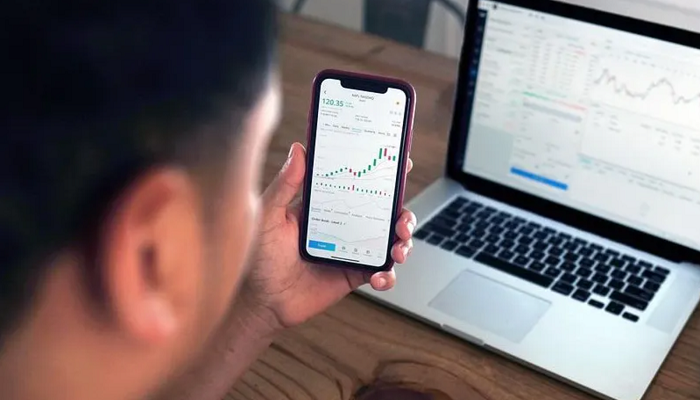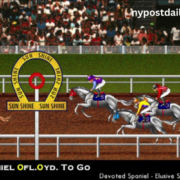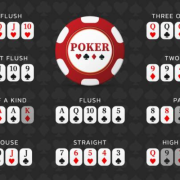Financial options also known as options, are derivative contracts that investors can use to speculate on the future direction of the overall stock market or individual securities. Options contracts give traders a choice, but not the obligation, to buy or sell an underlying asset at a specified price by a specified date. Keep reading below to learn more.
What are options?
The term option refers to a specific financial instrument that is based on the value of the underlying asset such as a stock. More specifically, options are contracts that give the bearer the right but not the obligation to either buy or sell an amount of the underlying asset at a predetermined price at or before the options contract expires. Like most financial instruments, options can be bought with a brokerage investment account.
Options are considered powerful assets as they can enhance an individual’s financial portfolio. They can do this through added protection, income, and leverage. For instance, options can be used as an effective hedge against a declining stock market to limit downside losses. In fact, this is the reason why options were invented – they were made with hedging in mind.In effect, options can be used similarly to an insurance policy and can potentially insure investments against a downturn.
Aside from hedging, options can also be used for speculation. Speculation is to take an educated guess on future price direction. If a speculator thinks that the price of a stock may go up in the future, they may buy a stock or a call option on said stock. Speculating using a call option instead of buying the stock outright is attractive to a few traders because options provide leverage. It may also cost less upfront compared to a full price of a stock.
How options work
When it comes to options contracts, it is all about determining the probabilities of future price events. The more likely something is to occur, the more expensive an option that is taking advantage of that event will be. For instance, a call value goes up as the underlying stock goes up.
The less time there is until expiry, the less value an option will have.This is because the chance of a price move in the underlying asset diminishes as it draws closer to expiry. This is why an option is also known as a wasting asset. If a trader buys a one-month option that is out-of-the-money, and the stock does not move, the option because less valuable with each passing day. Because time is a component of the price of an option, a one-month option is going to be less valuable than athree-month option. This is because with more time being available, the probability of a price moving in a trader’s favour increases, and vice versa.
Therefore, the same option strike that expires in a year will cost most than the same strike for one month. This wasting feature is a result of time decay. As such, the same option will be worth less tomorrow than it is today if the price of the underlying asset does not move.
Volatility will also increase the price of an option. This is because uncertainty pushes the odds of an outcome higher. If the volatility of the underlying asset increases, larger price swings increase the possibility of substantial moves both up and down.Greater price swingswillincreasethe chance of an event occurring. As such, the greater the volatility, the greater the price of the option, making volatility and options trading intrinsically linked.
Fluctuations in option prices can be explained by intrinsic value and extrinsic value – otherwise known as time value. An option’s premium is the combination of both of its values. Intrinsic value is the in-the-money amount of an options contract. For a call option, this is the amount above the strike price that the stock is trading. Time value represents the added value an investor has to pay for an option above the intrinsic value. This is the extrinsic value of an option. In real life, options are almost always traded at some level above their intrinsic value, because the probability of an event occurring is never absolutely zero, even if it is highly unlikely.
Understanding the trading terms
To better understand options and options trading, here are a few key terms that traders should know:
- Derivative: Options are what is known as a derivative, meaning they derive their value from another asset. For instance, currency options are dictated by the price of a currencywhich will dictate the value of the option contract. It can be an effective alternative to currency trading in the forex market.
- Call option and put option: A call option gives traders the opportunity to buy a security at a predetermined price by a specified date while a put option allows them to sell a security at a future date and price.
- Strike price: The strike price is the predetermined price. Traders have until an option contract’s expiration date to exercisethe option at its strike price.
- Premium: The price to buy an option is called a premium, and it is calculated based on the underlying security’s price and values.
How do options pricing work?
When trading options, traders pay a premium upfront, which then gives them the option to buy a call option or put options at the designated strike price by the expiration date.
A lower strike price has more intrinsic value for call options as the options contracts let traders buy the underlying asset at a lower price than what it is trading for currently. If the underlying asset’s price remains at the current price, a trader’s call options are in-the-money, and they can buy the asset at a discount.
Conversely, a higher strike price has more intrinsic value for put options because the contract allows them to sell the underlying asset at a higher price than where it is trading currently. The options are in-the-money if the asset stays at the current price, but traders have the right to sell it at a higher strike price if needed.
Benefits of trading options
While most investors avoid trading options as they can be very complex, it can still be advantageous to use them occasionally. Here are a few advantages of trading options below.
Flexibility: Options provide flexibility in terms of investment strategies. Investors can use options to speculate on the price movements of underlying assets, potentially generate income, protect their existing positions, or hedge against potential risks. Options also allowinvestors to designstrategies that align with specific investment goals and risk tolerance.
Leverage: Options provide leverage, which means traders can control a larger position with a smaller upfront investment. This amplifies the potential returns on investment if the trade goes in the desired direction. That said, leverage also increases potential losses, so proper risk management is crucial.
Diversification: Options offer an additional tool for diversifying an investment portfolio. By using options intheir trading or investment strategies, investors can gain exposure to different assets,sectors, or market trends. This can help reduce risk and potentiallyenhance overall portfolioperformance.
Bottom line
Overall, it is important to note that options trading involves risks and requires a solid understanding of options mechanics and strategies. It is recommended people educate themselves, conduct thorough research, and consider seeking guidance from experienced professionals and financial advisors before engaging in options trading.


















Comments